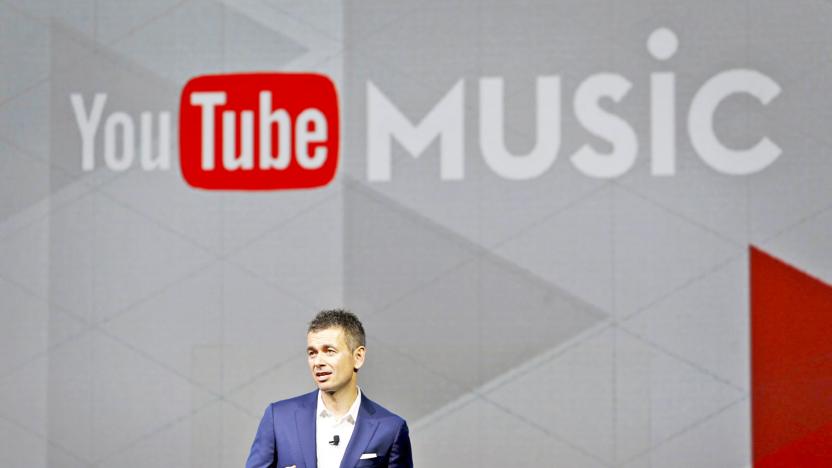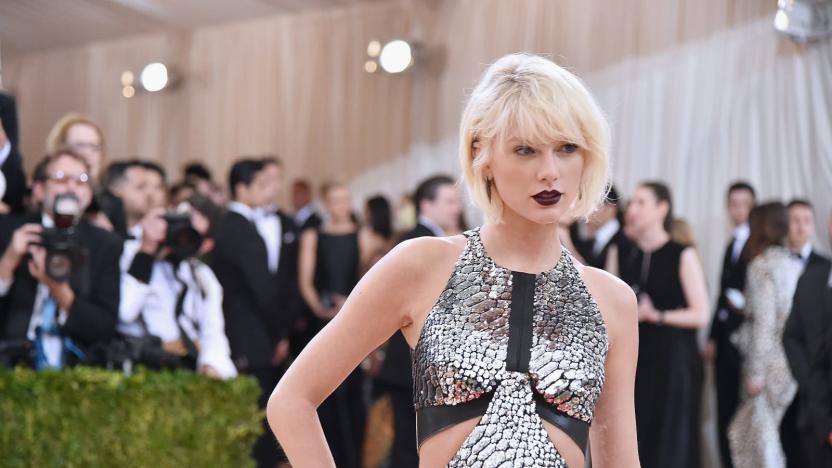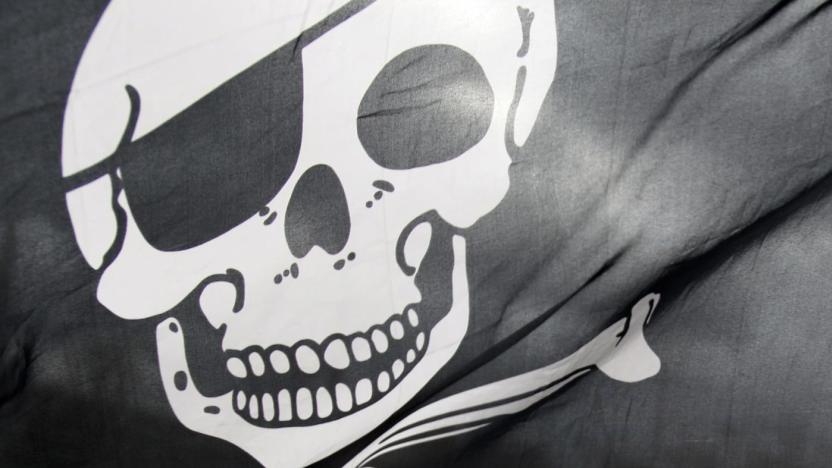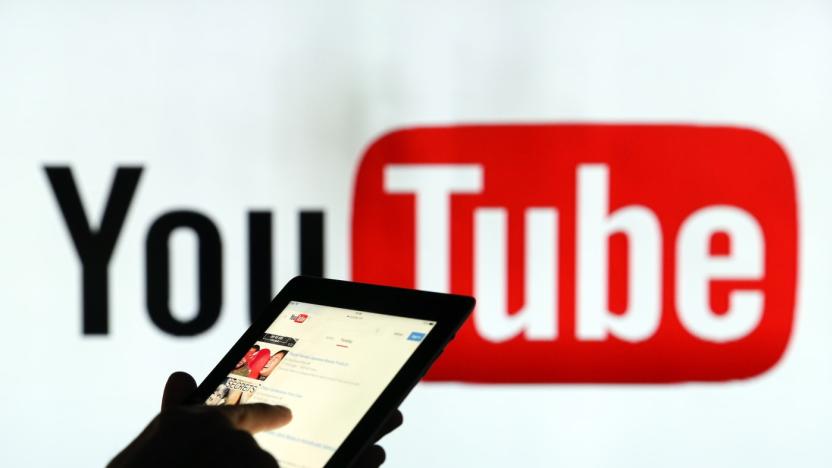DMCA
Latest

How to stream a paid UFC fight: pretend it’s a video game
Here's a fun one to start your week: On Saturday night, a Twitch streamer broadcasted the entirety of UFC 218 and, to skirt DMCA takedowns, he pantomimed like he was playing the UFC 3 video game. Yup, he streamed the mixed martial arts pay-per-view from Little Caesar's Arena in Detroit across his various social channels. AJ Lester went so far as to green-screen himself into the lower right corner of the broadcast, wear a headset and hold a (powered off) DualShock 4 for the entire fight. You can hear him twiddling the analog sticks and watch him play to the camera in the now-viral clip below.

US libraries will continue to preserve old games
Libraries and museums will most likely have more time to preserve old games before they disappear completely. The US Copyright Office has announced that it plans to recommend the renewal of a DMCA exemption giving museums and libraries the right to preserve old games, so long as they require sever support that's no longer working. They can even hack consoles to keep those games running if needed. This exemption has been in place since 2015, but it needs to be renewed every three years.

Atlus tried to take down a PS3 emulator advertising 'Persona 5'
Atlus has been infamously protective of Persona 5 even before it came out, and it looks like that hasn't changed a bit. The game developer has submitted a DMCA takedown notice against the creators of the PS3 emulator RPCS3 and their Patreon crowdfunding page. Emulators typically fall within the legal gray area of copyright law -- they don't infringe on anybody's intellectual property, but they can run illegal ROMs that do. However, as Kotaku noted, RPCS3's Patreon included updates about how far they are on getting Persona 5 to run on the emulator.

Pepe the Frog creator battles the 'alt-right' through copyright law
Pepe the Frog creator Matt Furie has long been unhappy with how the "alt-right" hijacked his friendly amphibian for hateful memes, going so far as to declare their uses "illegal" and to kill off the character in a symbolic gesture. And now, he's fulfilling that promise to fight back. Furie has sent cease-and-desist notices to multiple "alt-right" personalities (including racist Richard Spencer, conspiracy theorist Mike Cernovich and Reddit's r/the_Donald community), and he's issuing Digital Millennium Copyright Act takedown requests to pull infringing content from sites like Amazon, Google, Reddit and Twitter.

YouTube and Warner extend their streaming music deal
YouTube's relationships with music labels have certainly been fraught, but it just managed to reach a truce with one of them... at least, for now. The streaming service and Warner have extended licensing deals that will make sure Warner and its artists get paid for legal streams. The terms of the deal haven't been revealed, but a memo from Warner chief Steve Cooper suggests the label is being particularly cautious this time around. The deals are "shorter than usual," he says, "giving us more options in the future." And there's no mistaking why Warner is reluctant to commit for the long haul -- Cooper is convinced that YouTube is taking a lackadaisical approach to fighting piracy.

'League of Legends' creator wins $10 million in cheating lawsuit
If you've noticed fewer cheaters in your League of Legends matches in recent weeks, you now have a good idea as to why. Riot Games has won a settlement in its lawsuit against LeagueSharp, the subscription cheating service that offered automated play (that is, bots) to win in League games. The agreement has LeagueSharp paying $10 million, bans its software and gives Riot control over its websites. LeagueSharp technically shut down in January, but the terms of the settlement weren't circulating until now.

Hollywood forces VidAngel to stop streaming its movies
The Hollywood Reporter is reporting that Warner Bros, Disney and Fox have won an injunction against "family values" streaming service VidAngel. In the aftermath, VidAngel has announced that it will "cease streaming all works for which it has not obtained licensing." The company has also pledged to appeal, taking the fight all the way to the Supreme Court if necessary.

You can now legally hack your own car or smart TV
Researchers can now probe connected devices, computers and cars for security vulnerabilities without risking a lawsuit. Last Friday, the FTC authorized changes to the Digital Millennium Copyright Act (DMCA) that will allow Americans to do hack their own electronic devices. Researchers can lawfully reverse engineer products and consumers can repair their vehicle's electronics, but the FTC is only allowing the exemptions for a two-year trial run.

Nintendo issues DMCA takedown for hundreds of fan games
Whenever we see a high quality fan-game using a major gaming company's IP, we always think the same thing: it's only a matter of time. For hundreds of Nintendo fan projects, that time has come. Today, the Japanese gaming giant issued DMCA takedown requests for over 500 fan-games -- including AM2R: a lovingly crafted Metroid II remake that recently launched after 8 years of development.

EFF sues US government to void 'onerous' copyright rules
The Electronic Frontier Foundation (EFF) has sued the US government in an attempt to overturn a part of the DMCA that it says violates the First Amendment. The provisions, contained in Section 1201, restrict user access to purchased content including videos, music and the software used in cars, appliances and devices. "The First Amendment preserves our right to ... research and talk about the computer code that controls so much of our world," says EFF Staff Attorney Kit Walsh. "Section 1201 threatens ordinary people with financial ruin or even a prison sentence for exercising those freedoms."

Google defends its anti-piracy efforts
If you believe Trent Reznor and a good chunk of the music industry, Google (particularly YouTube) is a giant piracy machine -- it's allegedly doing little to block stolen content, and knowingly profits from it. Google isn't having any of that talk, though. The search firm just published an updated report detailing its anti-piracy efforts, and it maintains that it's doing a lot to fight bootleggers. It's adamant that its Content ID system (which can automatically claim copyrighted material for licensing or takedowns) does wonders for the media business. The technology has paid over $2 billion to copyright owners since launch, and about 98 percent of copyright action uses it -- just 2 percent comes down to formal copyright removal notices.

Blizzard sues an 'Overwatch' cheat developer
Blizzard has about as much interest in stamping out cheaters as you do, and it's willing to go to court to keep things clean. The company has filed a US lawsuit against Bossland, a German developer whose Watchover Tyrant app is designed solely to help unscrupulous Overwatch players. The software allegedly violates copyright law, including the Digital Millennium Copyright Act's anti-circumvention measures. More importantly, Blizzard claims that Watchover hurts both legitimate players and the bottom line. The developer may be losing "tens of millions of dollars" in sales to gamers put off by the thought that cheaters are running rampant.

Taylor Swift and 179 artists urge Congress to update copyright law
A group of 180 artists and musicians, including Taylor Swift, Paul McCartney, Carole King, Vince Staples and Kings of Leon, want Congress to take action on the 1998 Digital Millennium Copyright Act (DMCA). If you're not familiar, the copyright legislation essentially allows so-called safe harbors where you can upload content to be exempt from any infringement lawsuits based on the actions of its users. Those companies, apps and websites have to respond to takedown notices from the folks who actually own the copyright, but they can't be held liable for the offending video or music. This group of artists wants the government to reform the policy though, signing a petition in hopes of inspiring action.

4K copy protection removal shop settles for $5.2 million
Intel and Warner Bros. are still very much embroiled in a war on companies stripping copyright protection from 4K and Blu-ray videos. Hardware seller Ace Deal has agreed to pay the two industry giants $5.2 million to settle a lawsuit over alleged violations of the Digital Millennium Copyright Act. Supposedly, Ace Deal knowingly aided in piracy by selling devices that remove HDCP anti-copying measures, making it relatively easy to bootleg the latest 4K movie extravaganza. The shop has already pulled the offending gear from its online store and is barred from selling similar devices in the future, but the small outfit still faces a relatively big, potentially crippling payout.

Music industry pushes for digital copyright law reform
Think the Digital Millennium Copyright Act is broken, leading to all kinds of abuse? So does the American music industry... just not for the same reasons. The RIAA and other groups have responded to a US Copyright Office request for comment on the DMCA by calling for broad reforms of the "harmful" and "obsolete" law. They argue that the takedown notice approach doesn't work well given the sheer glut of pirated material -- all it takes is a slightly different web address to make that bootleg song available once again. They also claim that safe harbor provisions are too kind, letting some sites profit from piracy that they know is taking place.

Google had over 75 million takedown requests last month
Last month, Google processed over 75 million search takedown requests under the Digital Millennium Copyright Act (DMCA), or over 100,000 links per hour. That's more than double the number of links it processed during the same period last year, and over 300 times more requests than in 2012. So why the dramatic increase? Obviously, the amount of pirated content has increased exponentially on the internet, as Torrent Freak points out. At the same time, the MPAA, RIAA and other copyright-holders are now using algorithms that spot pirated content (often incorrectly) and automatically file takedown notices to Google.

YouTube reduces the chances of mistaken video takedowns (updated)
YouTube has taken steps to prevent mistaken takedowns of your videos, but that hasn't been enough for some. A rash of alleged policy violations in recent weeks (such as for Call of Duty clips) has triggered an outcry among creators who worry that YouTube is asleep at the wheel while its automated system goes haywire. Thankfully, the company appears to be listening. In a response to the mounting complaints, YouTube has revealed that it created a team focused on "minimizing mistakes" that take videos down without a legitimate cause. It's also promising transparency when it strips videos of revenue, and there are hints of efforts in the months ahead that will "strengthen communications" between YouTube support and video makers.

Intel, Warner sue over device that strips 4K copy protection
The media industry was more than a little alarmed when 4K bootlegs of Amazon and Netflix streams showed up this November. Weren't these feeds supposed to be relatively safe from pirates? It's no surprise, then, that they're doing something about it. Intel (through its Digital Content Protection brand) and Warner Bros. are suing LegendSky for offering HDFury, a series of devices designed to strip HDCP copy protection from many sources, including streams. The two plaintiffs claim that HDFury violates the Digital Millennium Copyright Act's anti-circumvention measures, making it all too easy to rip and share 4K video. They also allege that LegendSky is dishonest when it says it meets HDCP's licensing requirements.

Kim Dotcom could face extradition to the US
Kim Dotcom, essentially the Motion Picture Association of America and Digital Millennium Copyright Act's de facto prime target, and his colleagues actually can be extradited to the United States to face copyright charges according to a judicial ruling. However, don't expect the man behind Megaupload to appear stateside anytime soon.As The New Zealand Herald, Dotcom's local news publication, tells it, the internet mogul has 15 days to appeal or apply for a writ of habeas corpus (produce the body) and it looks like his legal defense team is already taking care of that. In addition to copyright infringement, he faces charges for racketeering and money laundering as well. The BBC reports that he owes domestic authorities somewhere in the neighborhood of $500 million.

Copyright exemption lets you modify old games to keep them running
You no longer have to dread the day that a game developer shuts off its servers and renders your favorite title unplayable. As part of a series of DMCA copyright exemptions, the US Library of Congress has granted long-sought permission to disable authentication server requirements in games where a server's shutdown will completely break the experience. Historians can even hack the consoles themselves, if necessary. This doesn't allow you to tweak games where you'd only lose multiplayer modes, but it does mean that at least some aspects of a classic game will live on.






